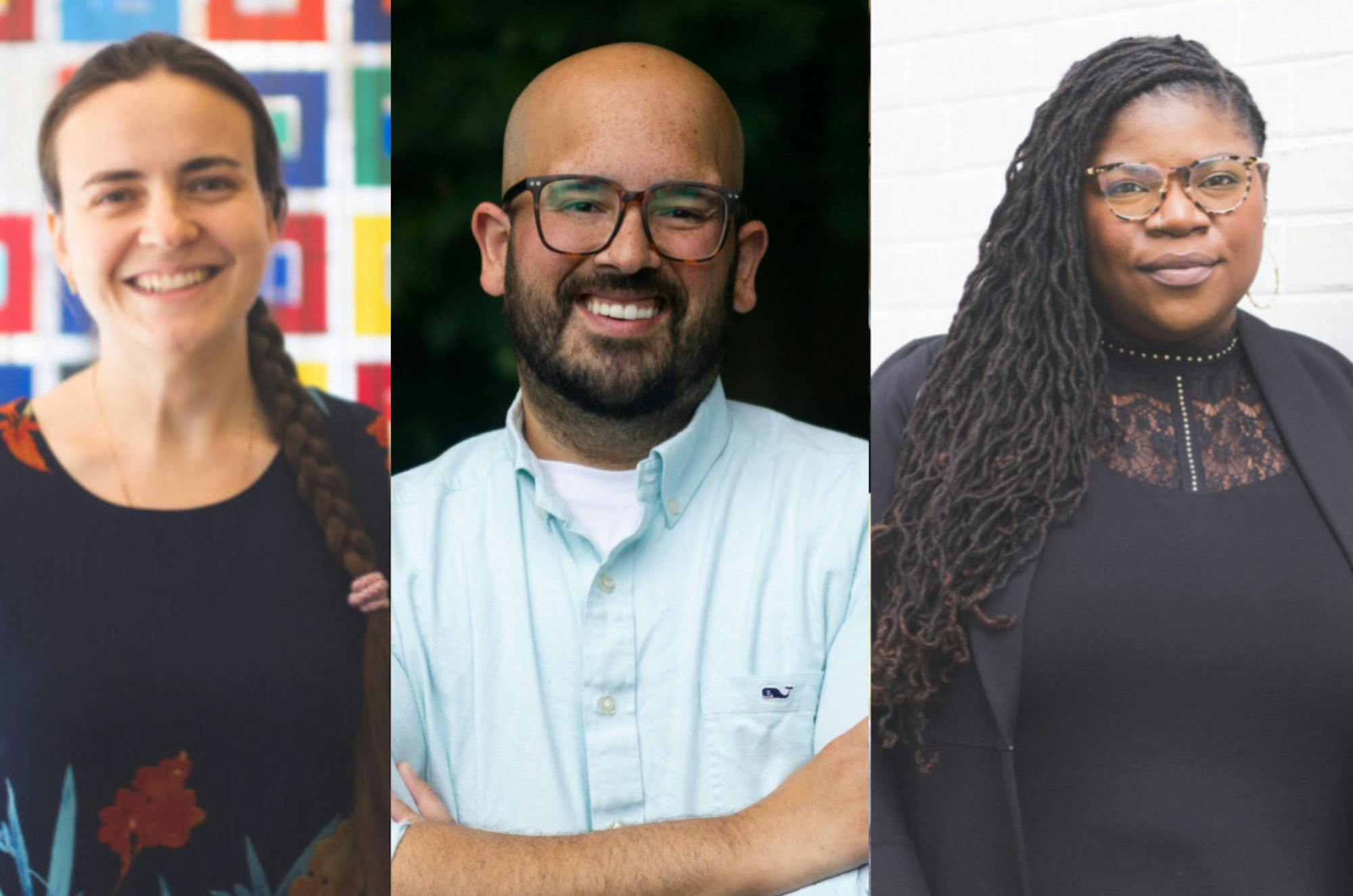On Dec. 15, Dartmouth announced the arrival of 43 tenured and tenure-track professors with the aim to broaden scholarship at the College. The cohort consists of researchers and writers with expertise across fields, including Asian American culture, biomedical engineering, cybersecurity, Indigenous modernism and quantitative social science.
While this cohort of professors hails from various backgrounds, three of the 43 new faculty members are Dartmouth alumni. In a statement to The Dartmouth, economics professor Heidi Williams ’03, a member of the cohort, wrote that she is “thrilled” to return to the College as a professor for many of the same reasons she chose to attend Dartmouth as a student.
“I see tremendous value in Dartmouth’s distinctive educational model, where faculty at the top of their fields in terms of research engage with students in a liberal arts setting,” Williams wrote.
According to assistant environmental studies professor Shersingh Joseph Tumber-Dávila, who is also a part of the cohort, Dartmouth’s faculty prioritizes teaching alongside independent research. Tumber-Dávila said this is a focus that many of the new faculty members appreciate.
“Dartmouth provided the balance of being able to do really high impact research, but be at a scale where teaching is still super important,” Tumber-Dávila said.
Shaonta’ E. Allen, a new assistant professor in the sociology department, said she was compelled to join the Dartmouth faculty due to the College’s transdisciplinary and collaborative focus. Allen said this model promotes innovation, both scholastically and in teaching.
“I’m really excited to continue to meet the other colleagues across campus and to think of interesting ways for us to collaborate and work together so that we can produce and engender really transformative learning experiences for the Dartmouth student body,” Allen said.
Another factor that draws professors to Dartmouth is the opportunity to work among talented colleagues.
“I’m excited to be colleagues with people that are pioneers in the field and also that are pushing science forward in really exciting ways,” Tumber-Dávila stated.
According to Tumber-Dávila, Dartmouth professors also make efforts to advance diversity, equity and inclusion in their respective fields and in the classroom. One new professor whose research explores issues related to race and social inequality is Allen.
“My research looks at the intersection of race, social movements and political ideologies … I believe that I could make a contribution with my research, which also adds an element of how religion factors into the ways that people are making sense of social inequality,” Allen said.
A new associate professor in the Mathematics department, Alena Erchenko, said she would like to help “develop support” for students with disabilities and from underrepresented groups.
Additionally, Tumber-Dávila said he hopes to become involved in Dartmouth’s Society for Advancement of Chicanos/Hispanics and Native Americans in Science chapter — an organization that aims to advance diversity in STEM fields.
Tumber-Dávila explained that his motivation to foster communities stems from his Puerto Rican heritage. He said he hopes to make the College feel like a place that is welcoming, inclusive and “where people can see their future.”
Tumber-Dávila said the College’s resources for his research on how climate change affects forests, and its location — the middle of Long Term Ecological Research sites — were other factors that led him to join Dartmouth’s faculty.
“[Dartmouth is] a place that is perfectly suited for my research,” Tumber-Dávila said.
Erchenko added that she is looking forward to undergraduates’ enthusiasm for learning, and that it was Dartmouth’s community that drew her to the College.
“[Dartmouth] felt like a family that I would like to be a part of,” Erchenko said.
Dartmouth’s close-knit community stood out to other new faculty members as well. Tumber-Dávila said that during his time at Dartmouth, he would like to focus on developing and contributing to a “thriving” academic community.
“My work as a scholar is very motivated by my connections to people,” Tumber-Dávila said. “Being able to tie those two things together almost seamlessly is enticing to me."
During her time at Dartmouth, Allen said she hopes to support students’ confidence in their ability to make an impact on the world.
“The impact I hope to have is to cultivate classrooms that encourage sociological imagination amongst students, so that they trust the lived experiential knowledge that they’ve gained,” Allen said.




